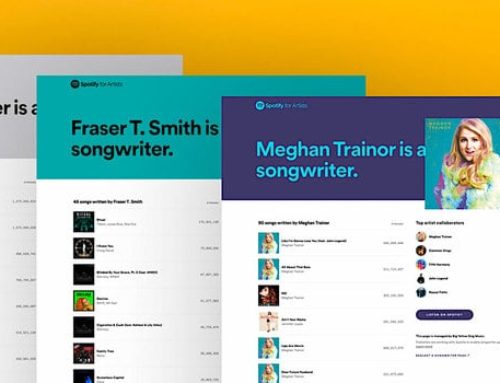There is a great deal of talk these days about the concept of “freeconomics,” spurned by the fact that most teenagers and college students are still ripping music and sharing it online. Most recently, the major record labels commissioned a study from two think tanks, The Leading Question and Music Ally, which resulted in a five recommendations for the music industry, including “bundling” of product. Another of the points was “Free doesn’t mean no money.” How original. And oh, by the way, IT DOES ACTUALLY MEAN THAT! You can read the full article about the study here.
 Let me start out by observing an old adage, which still holds true in life, that you tend to “get what you pay for.” I’ve always believed in that adage. There is generally a direct correlation in the amount of sawbucks you shell out to the quality of the product you receive. When I cook, for example, I use the freshest ingredients. I spare little expense. Sure, I try to find bargains, but if you skimp on the quality of your ingredients, you always skimp on taste. I have always resisted the impulse to buy meat on clearance!
Let me start out by observing an old adage, which still holds true in life, that you tend to “get what you pay for.” I’ve always believed in that adage. There is generally a direct correlation in the amount of sawbucks you shell out to the quality of the product you receive. When I cook, for example, I use the freshest ingredients. I spare little expense. Sure, I try to find bargains, but if you skimp on the quality of your ingredients, you always skimp on taste. I have always resisted the impulse to buy meat on clearance!
What about “free” goods? Just think about how many junk e-mails you receive every day offering you a “free” iPhone, or a “free” laptop, or a free whatever. . . the list goes on and on. Don’t you automatically just delete those? Of course you do — because everyone knows these types of things are given out for free: first, someone is actually paying for those goods; secondly, you have to subscribe to a certain number of paying offers in order to actually receive the “free” iPhone or laptop. There is another adage: nothing is life is free. Fact of the matter is, if I wanted an iPhone, I’d go out and buy it.
Now, let’s turn our attention to “freeconomics” and honestly call it what it really is: freakenomics! Again, nothing in life is free.
Nonetheless, we are lead by these researchers to examine Google and its model of giving out free software as an example of how the music industry can give away music and still achieve a profit. This analogy is wrong on so many levels, but I’ll just point out one basic incongruity: the software developers that are writing software for Google work for the conglomerate under a work for hire agreement – Google does not have to compensate multiple rights owners. It owns the entire product.
This is not so with a musical composition/sound recording combination. That is bundle that is not so readily united. The record label generally owns the sound recording of a musical composition, but does not always own the underlying music compositions. There may be multiple owners of the underlying compositions which have to be compensated – multiple songwriters and multiple publishers. The producer also must be compensated. The musicians who play on the record have to be compensated, not to mention their union fees and retirement fund. The engineers who work on the project are compensated. The artist has to be compensated for their performance. The people who master the product must be compensated.
What the simplistic – dare I say naive – five point plan laid out by the record “think tank” overlooks is that in order to accomplish the equivalent of something like a Google in the music industry, one has to completely rewrite the industry. While this is not a new idea, it is also not an idea that can be accomplished in today’s copyright structure nor within the current orientation of the music industry. Hundreds of years of practice have to be completed abolished for the Google model to work in the music industry.
Let’s look an entity that has actually tried to make such a paradigm shift: MySpace. It is most definitely the place where independent artists go to get their music heard. The music is generally free. How many artists have you listened to on MySpace in the last month? I’m in the industry, and I have listened to maybe two, but only because I received a specific request to do so.
How many artists on MySpace actually make a lucrative living doing what they are doing there? Again, the music is free isn’t it? Freecomonics will get us something akin to the quality of music that you find on MySpace in general. There is no realistic way to sift the wheat from the chaff.
The instant you stop rewarding the songwriters and artists that create the music — removing a real incentive for creating their art full time — the sooner you’ll find a void in the really high quality music. Yes, there are some who say that artists will produce art regardless of whether they receive compensation, because that is what they do. However, this is not historically accurate in music or any of the arts. If you find an artist who is thriving, you will generally find a source of money, whether it be selling the artwork to a famous benefactor or having financial muscle behind him or her.
In music, the major labels have historically been the finders and funders of the talent. They spend a lot of money discovering, developing and marketing the talent. For the most part, it is the major label product that gets traded on the P2P networks. That is one factor that is often overlooked. What the general public wants to hear, and shares on P2P, is generally the music that is marketed heavily – generally by the major labels. That will not change until someone constructs a better way to get music heard by the public in general.
So, I believe if you remove the economic component of music, you will ultimately eliminate the talent altogether. Otherwise, the talented will have to get day jobs to support their art and the art will most certainly diminish and/or suffer.
Let’s turn to some of the other suggestions made by The Leading Question and Music Ally:
(1) Music needs to be bundled with other products and entertainment packages. They conclude that “music needs to move away from per unit sales and become more of a service than a product.” Can we say YAWN class? The record labels cannot break themselves of the idea that people want a package deal. We don’t. We want ala carte! The sooner that the industry comes to this realization, the better off they will be. Isn’t this what the labels have been feeding us for years? This is but the “record album” in another iteration. Buy this collection of 10 songs, 2 of which are what you actually want and 8 of which bite! Come on guys, hasn’t the digital revolution taught you anything? Wake up and smell the single downloads. That IS what the consumer wants. Build a model that incorporates the single download. Don’t build a model that ignores it.
(2) Labels needs to experiment with new release schedules and formats. Seriously? Again, the think tanks suggest that “single . . . releases have run [their] course.” Ditto what I said above. Check out
the success of iTunes, emusic, Amazon, etc. etc. Check out what happens on P2P networks when a new digital single is released. The single is NOT a thing of the past. Now, granted, I agree that digital only releases and new pricing models are going to be part of the new model — couldn’t any fourth graders could tell you that? But again, people want their music ala carte. They want good music. They don’t want the bundles, the fillers, the parasitical crap that the industry wants to latch onto what they really want.
(3) Change the charts. Yes, people actually get paid to say this stuff! The conclusion is that the charts don’t make sense anymore because fewer people are buying music. In fairness, I understand this one to some degree. But, has anyone noticed that Billboard already tracks digital downloads? Has anyone noticed any of the other p2p tracking devices, such as Big Champagne, just to name one. Sure they have and so have the major labels. In fact, that is in part where many of the researchers get their data. No doubt, the tracking of general overall consumption should be an important factor in consideration. While we are at it, why not pay more attention to the portion of the market called baby boomers. The older generation that buys music, but rarely gets consulted when discussing these issues.
(4) Trust the DJ. Next to the CD format, the other big thing the record industry has a hard time letting go of is the radio format. The record industry likes to control the advise given about music so that they control what the listener “wants” to hear. The think tanks concludes that “the instant and massive availability of music on demand means you need a trusted guide like John Peel more than ever.” I disagree with this conclusion because I believe that this “advisor model” is antiquated. These days, most people rely more on social networking – either virtual or real — and trending algorythms to determine what music they enjoy. I don’t know of any teenager that listens to terrestrial radio any more. For them, a DJ is someone at a wedding reception and they are not likely to take advise from that person.
Yet, the file sharing continues and, more importantly, so does the need for change. Now that I have ranted a little about the suggestions made by these industry think tanks, let me say that I do, in fact, appreciate their efforts to come up with solutions to the declining music industry. I wholly agree with what the managing director of Music Ally, Paul Brindley says in the article, that the
“business models need to change radically if the music business is to stand any chance of halting the current decline in sales.” Without a doubt, something truly has to be done or the industry will fail.
As I heard one venture capitalist put it, for him to consider an investment in the music industry, it must be a paradigm shifting, industry changing business model. These suggestions by The Leading Question and Music Ally just don’t quite rise to that level, in my humble opinion. In my opinion, the ultimate solution will be a fair priced – but not free – digital download model. The most important component that is missing thus far, and that is critical, is a means of getting the music heard by the general population. We have many services which may be close, but as of yet, we are not quite there.





